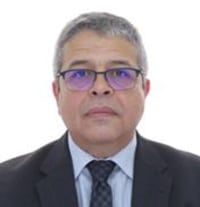Atmospheric Corrosion At The Pace Of The Industrial Revolutions
Progress is directly related to materials development. This is a valid relationship, both chronologically and geographically. Consequently, issues concerning corrosion and protection of materials are closely associated with the humankind advances, too. It is estimated that c.a. 80 percent of the metallic surfaces are exposed to atmospheric conditions. That means that a big part of the corrosion phenomena is related to the microclimatic conditions. These conditions are depending on the anthropogenic effects, and then microclimates are decided by technological development. In other words, atmospheric corrosion is directly linked to the industrial revolutions. This paper is oriented to show some relevant facts concerning with the atmospheric corrosion problems and anticorrosion measurements arisen from the previous industrial revolutions, as an introduction for deeper considerations about the current challenges and opportunities in front of the new Fourth Industrial Revolution.

Prof. Carlos Arroyave
Carlos Arroyave is an Emeritus Professor of the University of Antioquia. Currently, he acts as a free consultant serving the World Bank and other institutions around the world, dealing with subjects like corrosion and protection of materials, management of higher education, R&D and innovation policies, and development of science and technology parks.
Outstanding contributions along his professional career for more than forty years, including scientific and technological developments on the use of ethanol in conventional cars, the study of the effect of pollutants like chlorides, nitrogen oxides and particulate matter on atmospheric corrosion of materials, synthesis and in-depth characterization of iron oxides as natural corrosion barriers, development of new weathering steels, polymeric and metallic coatings behaviour, and materials protection for sustainability. Also, the contribution to the improvement of higher education, science, technology, innovation, and entrepreneurship in Colombia and abroad, are included. His intellectual production is reflected in 76 scientific papers, over 60 reports on industrial and higher education solutions, over 120 communications, and over 50 invited lectures worldwide.
Prof. Arroyave has been Vice-President for Science, Technology, and Innovation of the Antonio Nariño University, Vice-Rector for Academic Affairs of the Colombian School of Engineering, Deputy Director for Innovation and Corporate Development of the Colombian Institute for Science and Technology – COLCIENCIAS, founding member and innovation advisor of Qtag Technologies, and founder and technical adviser of Services and Technology of Materials.
He is the last past-President of the International Corrosion Council – ICC, past-President of the Ibero – American Association of Corrosion and Protection – AICOP, and promoter and past-President of the Colombian Association of Corrosion and Protection. Also, President of the Society of Metallurgical Engineers of the University of Antioquia.
Carlos Arroyave is a Metallurgical Engineer from the University of Antioquia (Medellin), M.Sc. in Metallurgical Engineering and Materials Science from the Federal University of Rio de Janeiro, D.Sc. in Chemistry from the National Centre for Metallurgical Research and the Complutense University of Madrid. Post-doctoral fellow at the Swedish Corrosion Institute (Currently, RISE – KIMAB, Stockholm). Visiting researcher at the University of Manchester, and visiting professor at the Politecnico di Torino.
Right now, Prof. Arroyave is a member of the editorial board of “Springer Nature Applied Sciences” (Chemistry/Materials), and “Nature pj Materials Degradation.” Besides, he is a member of the Ethics Committee of the Clinical Research Center, in Medellin, where he plays an active role as defender of people taking part as subjects in medical research.
